 Petzlover
Petzlover Coonhound is originated from United States but Parson Russell Terrier is originated from United Kingdom. Coonhound may grow 33 cm / 13 inches higher than Parson Russell Terrier. Coonhound may weigh 26 kg / 58 pounds more than Parson Russell Terrier. Coonhound may live 3 years less than Parson Russell Terrier. Both Coonhound and Parson Russell Terrier has same litter size. Coonhound requires Low Maintenance. But Parson Russell Terrier requires Moderate Maintenance
Coonhound is originated from United States but Parson Russell Terrier is originated from United Kingdom. Coonhound may grow 33 cm / 13 inches higher than Parson Russell Terrier. Coonhound may weigh 26 kg / 58 pounds more than Parson Russell Terrier. Coonhound may live 3 years less than Parson Russell Terrier. Both Coonhound and Parson Russell Terrier has same litter size. Coonhound requires Low Maintenance. But Parson Russell Terrier requires Moderate Maintenance
 The Coonhound, hailing from the United States of America, is a scenthound or hunting dog of which there are 6 distinct breeds which are recognized by the United Kennel Club.
The Coonhound, hailing from the United States of America, is a scenthound or hunting dog of which there are 6 distinct breeds which are recognized by the United Kennel Club.
Because foxhounds were regarded as inadequate for hunting, people started looking at the developlent of other hounds who had a keen sense of smell and the ability to track and animal effectively and without necessarily a human commanding it.
Foundation dogs were selected because of their keen sense of smell and Bloodhounds were also added to the Coonhound line to provide the Coonhound with superb tracking skills. Its precise origins are unknown but it is believed that many of the European hunting hounds were involved in its development as well as the Kerry Beagle and the FrenchBleu Gascogne hounds.
It was in 1912 that the first Black and Tans were registered with the United Kennel Club. In 1945 the American Kennel followed.
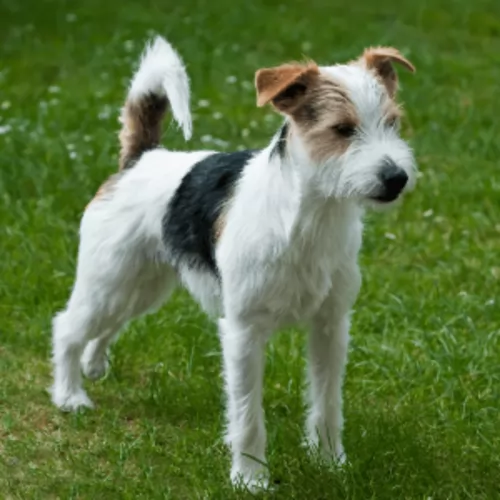 The Parson Russell Terrier hails from England and is a small to medium sized dog dating back to the 18th century. It is believed that Reverend John ‘Jack’ Russell was the developer of this dog. The Parson has always been involved with England’s sport of foxhunting.
The Parson Russell Terrier hails from England and is a small to medium sized dog dating back to the 18th century. It is believed that Reverend John ‘Jack’ Russell was the developer of this dog. The Parson has always been involved with England’s sport of foxhunting.
They’re spritely and quick and have been able to keep up on a hunt and take on a fox in its lair. The dog was first recognized in 1990 in the United Kingdom as the Parson Jack Russell Terrier and in America in 1997.
All the top kennel clubs recognize this dog as the Parson Jack Russell Terrier.
 Known also as the Black and Tan Coonhound, the Coonhound is a medium to large dog weighing 23–34kg and standing at 53-69cm. He makes an exceptional pet.
Known also as the Black and Tan Coonhound, the Coonhound is a medium to large dog weighing 23–34kg and standing at 53-69cm. He makes an exceptional pet.
He has a short, dense coat of black and tan in color with tan markings around the muzzle. He has long, floppy ears and a long tail. With his long, strong, muscled legs he is able to pick up speed when on the hunt. He is known for his deep, booming bark.
The Coonhound isn’t as jaunty as some other dog breeds but he is social, playful and friendly. He is even tempered and sensitive, and you’ll know when you’ve hurt his feelings as he gets a look about him of utter misery.
He definitely isn’t suited to apartment living and being left on his own, and is therefore not suited to an owner who works all day and leaves him on his own. They just love human companionship, and enjoy taking part in all the activities of their owner's life.
Early training and socialization will be necessary to ensure he grows up calm, obedient, relaxed and confident. When he has been socialized he makes an excellent family pet, getting on well with children as well as with other pets in the home.
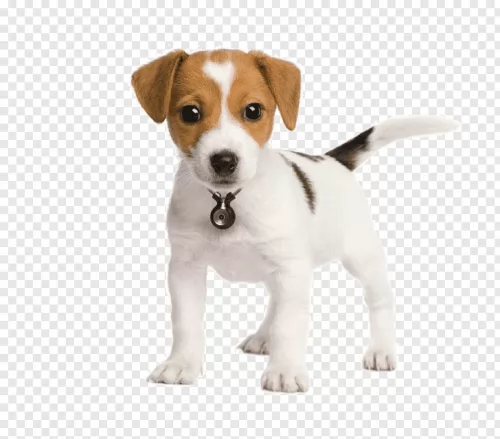 The Parson Jack Russell is essentially a white dog with black and tan or orange-fawn patches. He can be tri-colored too. The coat is either smooth, rough or broken.
The Parson Jack Russell is essentially a white dog with black and tan or orange-fawn patches. He can be tri-colored too. The coat is either smooth, rough or broken.
He stands at between 33–36cm tall at the withers and weighs between 5 and 8kg. Unlike the Jack Russell, the Parson Russell Terrier has longer legs. He has some longer hair on the head, legs and body. The ears are floppy wit the tip pointed forward. The tail has always been docked but when left long it it held high, slightly curving over the back.
Feisty, brave, cheeky and alert, the Parson Russell Terrier is an energetic dog who gets on well with children as he knows that this is essentially where his games come from.
He is bold and clever and you’ll be able to have him trained and socialized without any trouble. These little dogs are full of life and they are protective of their humans and their property, making excellent watchdogs.
 The Coonhound is often described as a carefree, happy-go-lucky type of dog breed who is social and who just loves to spend time with his human family.
The Coonhound is often described as a carefree, happy-go-lucky type of dog breed who is social and who just loves to spend time with his human family.
They just love their human family, and are full of mischievous tricks, being amusing and entertaining for the family.
He is a playful, gentle dog and he seems to keep his puppy nature much longer than with other dog breeds, but this is part of his appealing nature. He isn't a dog breed for everyone as some dog owners might want a more serious breed, but when trained and socialized, he promises to turn out to be an adored family pet.
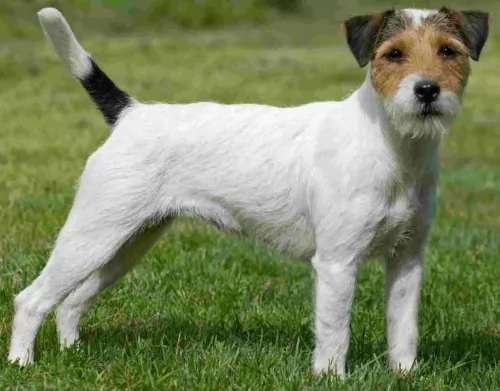 In general the Parson is a friendly,loving dog, fairly small but packed full of feisty personality.
In general the Parson is a friendly,loving dog, fairly small but packed full of feisty personality.
They make excellent pets for the entire family. He is an intelligent dog, but typical of most terriers he can be stubborn, but this can easily be fixed with training and socialization. With good care, he’ll make you a wonderful little pet and companion.
 Coonhounds usually enjoy very good health, but they can still suffer with any one of the more common dog illnesses there are. They’ve got long ears so they are more prone to ear infections. Also, hip dysplasia has been recorded too.
Coonhounds usually enjoy very good health, but they can still suffer with any one of the more common dog illnesses there are. They’ve got long ears so they are more prone to ear infections. Also, hip dysplasia has been recorded too.
It is why so many breeders opt to have their dogs certified by the Orthopedic Foundation of America.
Ear infections in dogs with long ears are common and most dogs who suffer with an ear infection will scratch at the ears and shake their heads. There can also be redness in the ear.
Mites, bacteria and yeast are all common problems, and your veterinarian can treat it and show you how to clean the dog’s ears to keep them free from infection in the future.
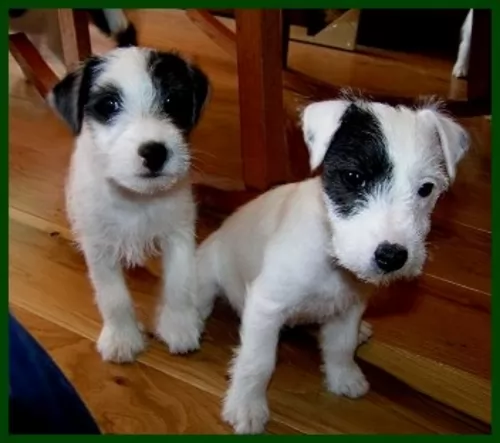 Your Parson Jack Russell can live to be between 12 and 15 years but nonetheless he does have some breed-related health issues to watch for.
Your Parson Jack Russell can live to be between 12 and 15 years but nonetheless he does have some breed-related health issues to watch for.
Eye conditions which can affect this dog include primary lens luxation,cataracts, corneal dystrophy and progressive retinal atrophy. With cataracts the lens of the eye develops a cloudy look resulting in poorer vision and sometimes blindness. Cataract surgery is available for dogs.
Your Parson Jack Russel should be lean and muscular and always full of energy. Avoid feeding him unhealthy treats which can lead to obesity and other health problems.
All kinds of parasites such as ticks, fleas and worms can invade your dog’s body. Roundworms, hookworms and tapeworms can cause havoc with their health and some of these parasites can even be transmitted to humans. It’s why it is important to get your puppy to the vet to be de-wormed and to get his first injections.
A liver disorder known as portosystemic shunt can mean that some of the blood supply doesn’t get to the liver and it doesn’t function properly. This will mean the liver can’t remove toxins from the bloodstream effectively.
 Your Coonhound will want a lot of exercise. While you keep him on a leash when walking him or allowing him to run while you cycle, he’ll also want a place where he can run off the leash.
Your Coonhound will want a lot of exercise. While you keep him on a leash when walking him or allowing him to run while you cycle, he’ll also want a place where he can run off the leash.
Even though the Coonhound is a short haired dog, he does shed. Making use of a rubber curry brush, brush him down twice a week to maintain his beautiful black, velvety coat.
Because he is an athletic outdoor dog, he may be more prone to picking up ticks and fleas and there are excellent shampoos available that keep these parasites at bay for a good many days.
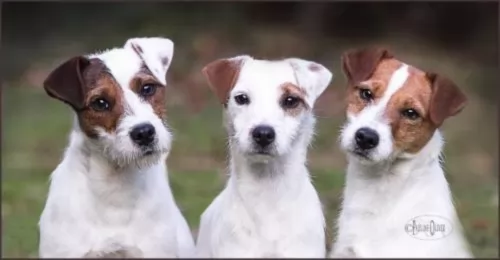 The Parson Russell Terrier has different coat types – the smooth and rough and both will require regular brushing. Rough coats will require plucking or clipping to avoid matting.
The Parson Russell Terrier has different coat types – the smooth and rough and both will require regular brushing. Rough coats will require plucking or clipping to avoid matting.
Check his eyes and ears regularly. Look inside his ears for excess wax and dirt which could lead to an ear infection. His nails should also be trimmed.
The best thing you can do for your Parson Russell Terrier if you don’t want your pet producing puppies is to have it spayed or neutered. Spaying for females or neutering for males decreases the likelihood of certain types of cancers too so it can be beneficial.
Diet is hugely important for a Parson Russell Terrier and the food you decide for him can impact his health. Many time those ‘treats’ you feed your pet do nothing more but give him a stomach ache.
It's tempting to pop chocolates, popcorn, nuts and ice cream into your pets mouth when he is so adorable but in the long run it is shortening his life. All he basically requires and needs is a simple, consistent diet of the top commercially manufactured foods mixed with some tasty home made food from time to time.
Boiled chicken, brown rice and vegetables such as sweet potatoes, carrots and spinach will do your pet wonders. Ensure he always has fresh, cool water available to him.